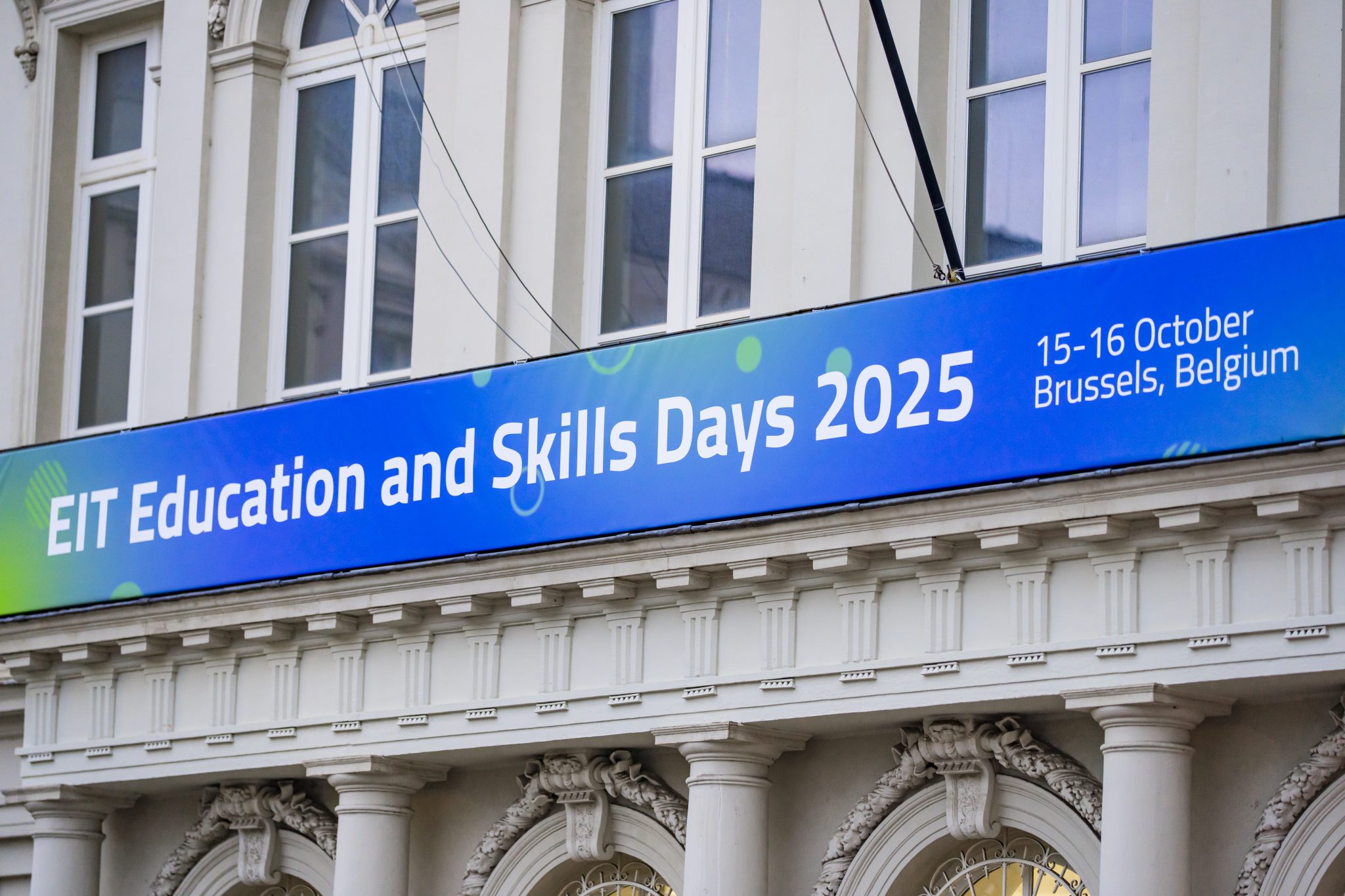TECH2X at EIT Education & Skills Days 2025

At the opening of the EIT Education and Skills Days conference on 15–16 October in Brussels, one sentence set the tone: “Resilience is not built in factories.” It captured the urgent need for soft-skills training and framed two days of discussion on how to build these capabilities in Europe’s innovation ecosystem. CERN IdeaSquare’s Ole Werner was there representing TECH2X to find out more.
But where to start? Founding a company cannot be taught. Yet every learner should acquire the skills that successful founders share — confidence, empathy, and persistence. The confidence to tackle problems beyond one’s expertise, the empathy to work across disciplines, and the persistence to try again when ideas fail are all essential in deep-tech entrepreneurship. Still, industry voices report that few job applicants can demonstrate these skills.
Europe’s universities lead the world in research, yet Europe lags behind in start-ups and spin-offs. The EIT Education & Skills Days 2025 therefore focused on aligning academic training with industry needs — celebrating successes, defining new standards, and forming alliances to close this gap.
A high-level panel featuring an MEP, two European Commission members, and a founder in renewable energy and circularity was asked which superpower would matter most in tomorrow’s job market. Their answers converged: confidence, curiosity, problem-solving, open-mindedness, and an entrepreneurial mindset — all skills still in short supply among graduates and rarely addressed through current university curricula or micro-credentials.
The audience — policymakers, educators, and researchers from across Europe — agreed. Students from EIT projects shared similar views. One remarked that he learned more from his peers than from his teachers — a powerful reminder of the value of interdisciplinary, peer-to-peer learning.
The conference concluded with a clear message: initiatives like the TECH2X project are essential for a competitive Europe. By bringing together diverse student cohorts, teaching vital soft skills, and challenging them to apply technology creatively to real-world problems, such programs embody the future of STEM education. Europe must offer students distinctive and engaging learning experiences that foster a new generation of collaborative, tech-savvy, and entrepreneurial professionals ready to tackle today’s challenges in their local contexts.
